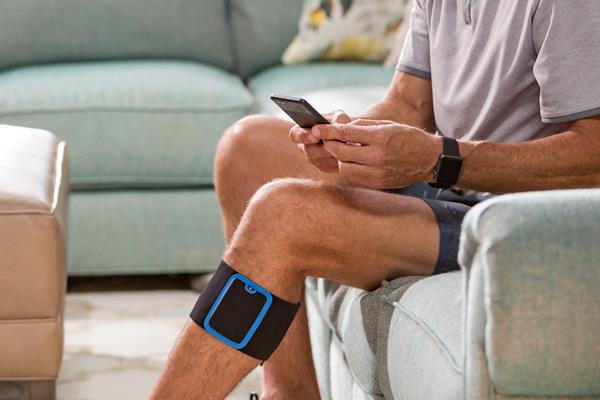
NeuroMetrix announced that it has launched a marketing initiative focusing on chronic knee pain. This effort includes direct-to-consumer digital marketing as well as informing physicians and other health care providers about the use of Quell for their patients with knee pain.
About one-quarter of U.S. adults suffer from frequent knee pain, which limits function, decreases mobility, impacts sleep and reduces quality of life. Chronic knee pain is typically treated with oral non-steroidal anti-inflammatory drugs and occasionally prescription opioids. These medications have side effects and, in the case of opioids, may lead to addiction. Surgery is an effective option for some individuals with chronic knee pain.
Transcutaneous electrical nerve stimulation (TENS) is a safe, non-invasive pain relief option, that has been used by physicians, physical therapists, and other health care professions for decades to treat chronic pain. Quell is the only true wearable TENS device. It is well suited to chronic knee pain because it is worn just below the knee, is not much larger than a credit card, and is comfortable enough to use 24/7. Quell is the only TENS device with specific FDA 510(k) clearance for use while sleeping. According to the Company’s Quell Health Cloud™, regular Quell users with knee pain wear their device for 10 hours a day and 40% use it while sleeping.
Quell has been commercially available over-the-counter since 2015. The most recent version, Quell 2.0, was launched in late 2018 and represents the most advanced TENS technology on the market. Key features include:
Only TENS device powered by a proprietary neurostimulation microchip
Prescription strength nerve stimulation
Therapy Autopilot™ automatically controls and personalizes nerve stimulation
Advanced power management requires battery recharging only once or twice a week
Controlled and enhanced by the industry leading Quell Relief mobile app
Detects and compensates for changes in the weather that may aggravate pain
Digital health enabled – objectively tracks sleep, activity and gait and user reported pain
Covered by 14 U.S. patents
Source: Company Press Release






